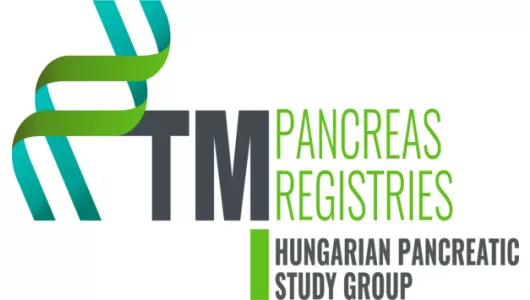
Pancreas Registries
Head: Szilárd Gódi, Department of Translational Medicine, University of Pécs
Showing increasing incidence, acute pancreatitis is one of the most common diseases that requires hospitalization and is associated with significant morbidity and mortality. In spite of numerous basic research results and a number of clinical studies targeting preclinical, pharmacological or new treatment processes, still no specific therapy exists to decrease the number of local or systemic complications and severity. The Hungarian and foreign institutions that have joined and the data that have been collected may serve as a basis to start international, multicentre, randomized, controlled trials. The samples stored in the biobank provide the opportunity to conduct genetic analyses.
Chronic Pancreatitis RegistryHead: Ákos Szücs, 1st Department of Surgery, Semmelweis University, Budapest
Chronic Pancreatitis is a chronic inflammatory disease of the pancreas, accompanied by structural and functional damage of the organ. In most cases, the main symptoms are pain, digestive disorders and weight loss, which significantly worsen the quality of life. The objectives are to perform a correct and differential diagnosis of the disease and to provide adequate treatment for patients.
The Chronic Pancreatitis Registry has been set up so users can access a database to acquaint themselves with current practice and to carry out genetic analyses. Since it is a chronic disease, it is crucial to follow up patients and involve them in clinical trials in order to gain an insight into the progress of the disease, its influence on quality of life and the effectiveness of possible therapies.
Pancreatic Cancer RegistryHead: Gábor Lakatos, Joint Szent István and Szent László Hospital, Budapest
Pancreatic cancer is one of the most aggressive, often belatedly diagnosed illnesses with one of the worst progressions. The number of pancreatic cancer patients has been increasing worldwide, and by the time the diagnosis is made, no more than 15% of patients are operable, with surgery being almost the only chance for recovery. 30% of patients die within 12 months.
Early recognition, diagnosis, and surgical, oncological and palliative treatment of the illness would be especially important. Since very few data are available currently, collecting clinical data and biological samples provides a good opportunity to assess and evaluate the current diagnostic and treatment methods, as well as to plan clinical trials.
Uploading centres
Fejér Megyei Szent György Kórház: 471
BMKK Dr. Réthy Pál Kórház: 111
Békés Megyei Pándy Kálmán Kórház: 40
Heim Pál Országos Gyermekgyógyászati Intézet: 27
B.-A.-Z. Megyei Kórház és Egyetemi Oktató Kórház: 18
Csongrád Megyei Egészségügyi Ellátó Központ: 15
Markusovszky Egyetemi Oktatókórház: 25
Tolna Megyei Balassa János Kórház: 5
Betegápoló Irgalmasrend Budai Irgalmasrendi Kórház: 10
Kiskunhalasi Semmelweis Kórház: 1
Országos Onkológiai Intézet: 2
Szabolcs-Szatmár-Bereg Megyei Kórházak és Egyetemi Oktatókórház Jósa András Oktatókórház: 3
Egyesített Szent István és Szent László Kórház: 1
Petz Aladár Megyei Oktató Kórház: 7
Data as of 30. 09. 2019.